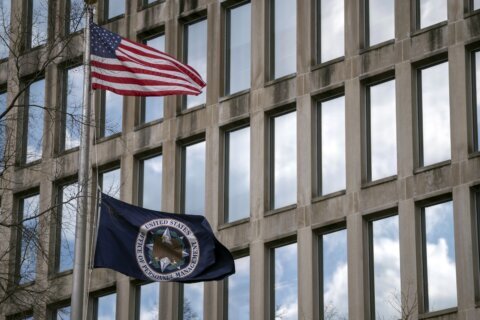President Donald Trump and his administration’s implementation of the “Department of Government Efficiency,” an Elon Musk-led initiative to reduce government spending and shrink federal agencies, has been rapid and aggressive.
Privacy and cybersecurity experts are raising alarms on the data that’s been accessed — and how it’s been accessed.
The administration has strongly defended the actions of DOGE so far, telling The Associated Press earlier this week that what was happening was a follow through on promises to make the federal government more efficient.
However, Richard Forno, assistant director of the UMBC Cybersecurity Institute, said one’s technical prowess and sophistication can only go so far when dealing with government networks.
“My worry, as a cybersecurity person, is that these systems that DOGE is bringing in, how well secured are they,” Forno said. “If I can get into their systems, I can then get into whatever data and systems they’re working on. And that’s the bigger concern.”
Citing the youth and inexperience of some involved with DOGE, Forno said he worried about the qualifications of some of those given broad access to data, regardless of how savvy they are with computers and cyber matters.
“The amount of data on every American citizen and business that the government holds is very intimate,” Forno said. “Personal tax histories, maybe medical records, things like that. That information needs to be protected and it can’t be carelessly handled or off-loaded to third party sites without any kind of controls or oversight, because who knows where that data could end up.”
The Associated Press reported members of Congress, including Virginia Rep. Gerry Connolly, have also expressed those concerns. The White House suggested those concerns aren’t valid and defended those who are scouring through different federal agencies.
“It takes direct access to the system to identify and fix it,” Harrison Fields, principal deputy White House press secretary, said in an email to the AP on Thursday. “DOGE will continue to shine a light on the fraud they uncover as the American people deserve to know what their government has been spending their hard-earned tax dollars on.”
Forno said there are things Americans can do if they’re worried about how their own data is being handled, whether they work for the government or not. His first suggestion was locking down your credit records.
“That way, at least if your personal data somehow gets compromised or stolen during this government chaos, you at least have some protection that you’re not going to suddenly have a bunch of new bank accounts or credit cards being opened in your name,” Forno said. “That can help protect you from a lot of the problems that could occur.”
The Associated Press contributed to this story.
Get breaking news and daily headlines delivered to your email inbox by signing up here.
© 2025 WTOP. All Rights Reserved. This website is not intended for users located within the European Economic Area.







